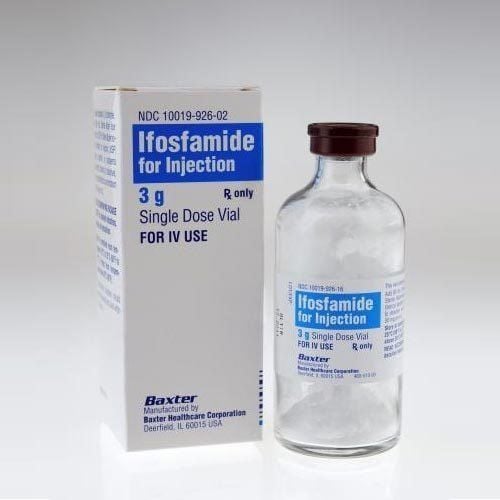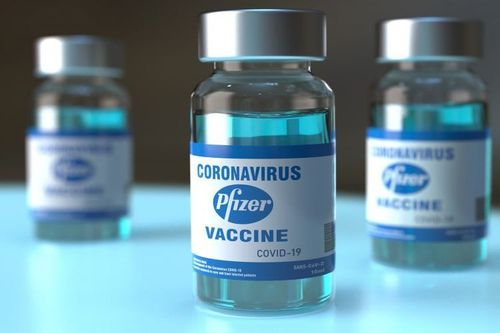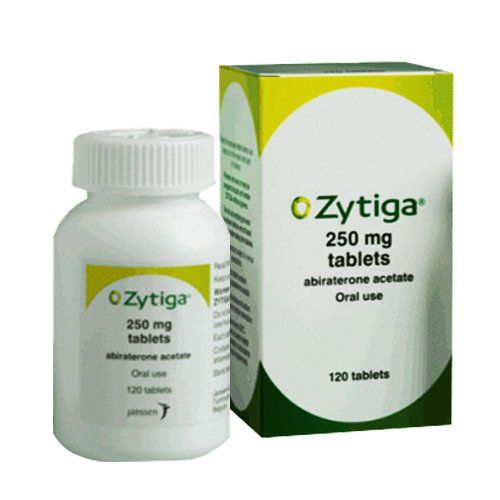This is an automatically translated article.
Kymriah medicine has the active ingredient Tisagenlecleucel which belongs to the group of drugs for the treatment of acute lymphoblastic leukemia and non-Hodgkin's lymphoma. The drug is prepared in the form of a solution for injection and is indicated for the treatment of acute lymphoblastic leukemia. However, in the course of drug treatment can cause some unwanted side effects such as, so before using Kymriah, patients need to learn carefully and follow the doctor's instructions.1. Mechanism of action of the drug Kymriah
Kymriah drug is considered as an autologous T-lymphocyte immunotherapy with the ability to programmatically modify the gene structure encoding the CAR antigen - Chimeric Antigen Receptor targeting CD19. CAR-encoded T lymphocytes or CAR-T cells. The CAR fraction binds to CD19 on cancer cells and normal B cells. After binding to CD19, the compound in the CD19 drug will activate T lymphocytes to proliferate and promote the secretion of inflammatory cytokines and chemokines to destroy target cells.
2. Indications for the use of Kymriah
What is Kymriah medicine? Kymriah is indicated as a cancer therapy for adult patients with recurrent or refractory acute T-lymphocyte leukemia. Or the patient has a relapsed, refractory non-hodgkin lymphoma after treatment for at least two other types of tumor.
However, CD19 drug may be contraindicated in cases where patients are allergic to any ingredient of Kymriah drug, or people have infections such as gout, hepatitis B, hepatitis C, HIV...
3. Dosage and how to use Kymriah
Kymriah drug is made in the form of a cloudy solution and is administered intravenously only once at medical facilities. However, before implementing T-lymphocyte-depleting intervention, in some cases, pretreatment with acetaminophen and H1-antihistamines as well as prophylaxis with tocilizumab should be performed if cytokine release syndrome occurs.
Therapeutic dose for CAR-positive T-cell lymphoma may be recommended based on the patient's weight.
For patients weighing less than 50 kg, perform intravenous infusion of Kymriah drug with a dose of 0.2 to 0.5 x 106 CAR-positive T cells for each patient's body weight.
For patients weighing more than 50 kg, perform an intravenous infusion of Kymriah with a dose of 0.1 to 2.5 x 108 total CAR-positive T cells.
Before performing Kymriah injection, the patient needs to prepare the use of drugs including, acetaminophen and H1 antihistamines. At the same time, patients should be closely monitored after using this drug. Viruses in the body can be reactivated after mediated treatment. Patients should be monitored for hepatitis B, hepatitis C, and HIV before infusing Kymriah into the body.
When using Kymriah, do not drive or operate heavy machinery for at least 8 weeks.
4. Unwanted side effects and some notes when using Kymriah
Kymriah may cause some unwanted side effects during drug treatment. However, the degree of side effects of the drug depends on the condition of each patient.
Cytokine release syndrome. After the patient receives Kymriah, a large number of white blood cells are activated and release inflammatory cytokines which can lead to cytokine release syndrome. Even severe cases can form a cytokine storm. Signs of this syndrome include high fever, lower-than-normal blood pressure, shortness of breath, nausea... Therefore, if you experience any of the above signs, the patient should immediately notify the doctor. Neurotoxicity. Kymriah can cause neurotoxic effects within 8 weeks of taking the drug into the body. Signs of this phenomenon include headache, convulsions, personality changes, anxiety, disorientation, agitation.. Infection and decreased white blood cell count cause neutropenia when using Tivdak. . White blood cells play an important role in the body's fight against infections. When treated with Tivdak, it can cause the white blood cell count to drop, which increases the risk of infection in the patient's body. Patients may experience symptoms such as fever over 38 degrees Celsius, colds, sore throat, shortness of breath, burning when urinating and pain states that do not go away... When the patient experiences the above signs It is necessary to immediately notify the treating doctor for examination and timely medical assistance. Hypoglycemia . Kymriah can lower immunoglobulin levels and put you at high risk of infection. Therefore, regular monitoring of this test is required. Reduces appetite. Diet plays an important role in disease prevention and patient care. Cancer treatment can affect a person's appetite. Therefore, patients can apply to eat small meals and divide them into many meals, need to provide enough useful nutrients for the body. Adding flavor-enhancing foods helps stimulate eating better. Fast heart beat . Kymriah medicine can make the heart beat faster and then the patient will feel chest pain, dizziness, shortness of breath... Nausea and vomiting may occur when using Kymriah medicine. Patients can tell their doctor to prescribe medication to help control the condition. In addition, patients should avoid using foods that can aggravate symptoms such as using foods that are greasy, fatty or have sour spices... Instead, antibiotics can be used. acid, salt water, ginger beer to relieve symptoms of nausea and vomiting. The patient is always tired. After cancer treatment, patients always feel exhausted and tired. Therefore, patients need to be guided to adjust as well as plan for long rest and save energy for important activities. In addition, exercise can be done to combat fatigue by walking, relaxing, etc. Causes problems related to kidney disease. Kymriah can cause an increase in creatinine, so people with cancer treated with this medicine should have their blood tests periodically monitored. In case the patient appears to have decreased urine output, hematuria, swelling of the ankles or loss of appetite, it is necessary to notify the doctor for timely medical assistance to minimize the effects of the drug. The platelet count is reduced. Platelets play a role in blood clotting. Therefore, when the platelets in the body decrease, the patient has a high risk of bleeding such as: nosebleeds, bleeding gums, or blood in the urine... Allergic reactions. In some cases, patients may experience chest pain, rash, flushing, itching... Low red blood cell count leads to anemia. The number of red blood cells in the body is responsible for transporting oxygen to the body's tissues. When the number of red blood cells is low, the patient's body will be tired, shortness of breath, chest pain. If the red blood cell count is too low, a blood transfusion is needed. Above is important information about Kymriah. In the process of using the drug, if there are any problems, the patient should discuss directly with the doctor for appropriate indications.
Please dial HOTLINE for more information or register for an appointment HERE. Download MyVinmec app to make appointments faster and to manage your bookings easily.













